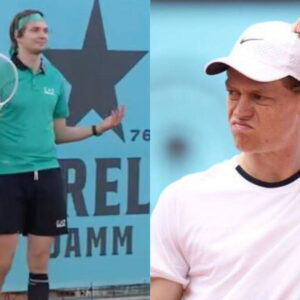When will there be a final verdict on Jannik Sinner’s doping case and will he be stripped of his Grand Slam title?

With the Shanghai Masters title after a final victory over Novak Djokovic, Jannik Sinner had the most successful season to date in his career.
It’s the 23-year-old’s seventh trophy in 2024. And he’s also certain to end the year as world No. 1.
However, also in 2024, an event occurred that made Sinner the center of controversy. He tested positive for the banned substance clostebol twice in March.
Instead of a ban, an independent panel accepted the International Tennis Integrity Authority (ITIA)’s explanation that there was “no fault or negligence” on Sinner’s part.
The council said the world number one had given a “credible” explanation and he could continue playing.
But that decision was opposed by the World Anti-Doping Agency (WADA) and an appeal was filed with the Court of Arbitration for Sport (CAS).
No date has been set for a hearing. Several issues need to be clarified in this case.
Why was Sinner allowed to continue playing?
Sinner was immediately provisionally banned after each failed test, as per ITIA regulations. The ban was lifted after 1 day and 3 days after each failure, respectively, after he successfully appealed the decision.

The quick response of Sinner’s lawyers, appealing on the same day they were informed of the failed tests, allowed him to continue playing.
Sinner, with more than £22m in career prize money and lucrative sponsorship deals, has the advantage of being able to afford professional legal representation – unlike many other players in similar situations.
Can a sinner be banned?
Yes. WADA is seeking a 1 to 2 year ban for Sinner from the date of the CAS ruling.
WADA is the overarching independent body responsible for drafting the World Anti-Doping Code and ensuring that it is properly implemented.
In tennis, ITIA applies rules set by WADA. This is the first time WADA has appealed a case led by ITIA.
In the Sinner case, WADA believes that finding him not guilty or negligent is “inappropriate under current rules”.
Sinner did not dispute the traces of clostebol found in his test and WADA did not question his explanation of why the substance was present in his body.
But WADA believes Sinner bears some responsibility.

Will Sinner be stripped of his Grand Slam title?
No. WADA said it “does not seek to overturn any results” beyond sanctions imposed by an independent tribunal.
Sinner was stripped of ranking points and prize money from the semi-finals at Indian Wells, where he tested positive in his first test.
Two Grand Slam wins – the Australian Open in January and the US Open in September – were not affected.
When will CAS accept the case and when will it announce its decision?
There is no timeframe for these proceedings, but experience from other cases referred to CAS suggests that Sinner’s case may not be concluded for several months.
On 4 October, CAS confirmed that it had received WADA’s appeal and that proceedings had begun.

They said that “the parties are exchanging documents” and “an arbitration panel that will decide the matter” is being formed.
Once established, the board will issue procedural directives and conduct hearings.
The CAS panel’s decision will be final and binding, although either party has the right to appeal to the Swiss Federal Court within 30 days.
Are sinners treated differently?
Questions have also been raised about the speed with which the case was resolved and how it was kept under wraps.
As for the speed of the process, Sinner admitted his mistake and provided evidence to convince the board that he did not intentionally use doping. That made the case easier to resolve and he could continue playing.
Privacy has been guaranteed, according to ITIA rules, after the temporary ban was lifted.
“All anti-doping cases are different, but the process is always consistent and this case is handled on the facts, not on the player’s ranking,” said an ITIA spokesperson.





